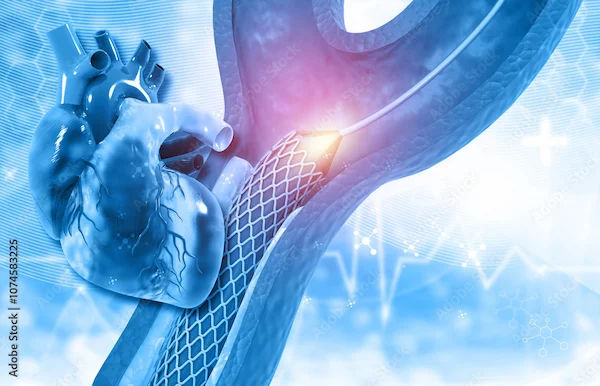- male
- 45 Years
- 22/01/2025
I've been having this pain in my left arm since yesterday, and it's really concerning me. I took a myotop p painkiller last night, but instead of getting better, the pain actually got worse this morning. I'm quite worried about what might be causing this. What should I do?
Answered by 1 Apollo Doctors
ecg and trop t are advised to the patient..
Dr. Ranjith Suggests...
Consult a Cardiologist
Answered 04/07/2025
0
0

More Cardiology Health Queries
View allI've recently been paying attention to my heart rate and I'm not really sure if it's normal or not. Right as I was about to fall asleep, I checked my Apple Watch and saw my heart rate was around 50-60 bpm. Sometimes it speeds up quickly even though I don't work out much. I think maybe I'm dealing with anxiety or exam stress. Is this kind of thing normal?
Just as you were falling asleep, a heart rate of 50-60 bpm is within the normal range for adults at rest. However, if you are experiencing rapid increases in heart rate due to anxiety or stress, you may benefit from a beta-blocker medication like Propranolol. The usual dosage for anxiety is 20-40mg taken 3-4 times daily. It can help reduce the physical symptoms of anxiety, such as rapid heart rate.
Answered by 1 Apollo Doctors
I'm trying to figure out what natural ingredients I should include in my daily diet to help control my high cholesterol. My lipid profile isn't looking great, and I'm currently on 10 mg of Zivast. I've also started exercising and making changes to my diet. What can I do diet-wise to improve my situation?
To help control your high cholesterol naturally, in addition to taking Zivast (atorvastatin) 10 mg and exercising, you can include several beneficial ingredients in your daily diet. These include: 1. Soluble Fiber: Found in oats, barley, beans, lentils, fruits (such as apples, pears, and berries), and vegetables. Soluble fiber helps reduce the absorption of cholesterol in your bloodstream. 2. Healthy Fats: Include sources of unsaturated fats like avocados, nuts, seeds, and olive oil. Replace saturated fats found in red meat and full-fat dairy with these healthier options. 3. Omega-3 Fatty Acids: Found in fatty fish like salmon, mackerel, and sardines, as well as in flaxseeds and chia seeds. Omega-3s can help lower triglycerides and improve heart health. 4. Plant Sterols and Stanols: Naturally found in small amounts in fruits, vegetables, nuts, seeds, cereals, legumes, and vegetable oils. Some fortified foods also contain added plant sterols. 5. Garlic: Has been shown to have cholesterol-lowering properties. Incorporate fresh garlic into your meals. 6. Green Tea: Contains antioxidants that may help lower LDL cholesterol levels. Maintaining a balanced diet with these ingredients, along with your medication and exercise, will support your efforts to manage your cholesterol
Answered by 1 Apollo Doctors
I'm curious if heart angioscopy can diagnose all heart issues. Can it detect problems with both valves and arteries? I'm really anxious to know.
In heart angiography, doctors can visualize the blood flow in the coronary arteries to check for blockages or narrowing that may indicate coronary artery disease. However, heart angiography does not directly assess heart valve problems. To evaluate heart valve problems, doctors may use other tests such as echocardiography.
Answered by 1 Apollo Doctors
Disclaimer: Answers on Apollo 247 are not intended to replace your doctor advice. Always seek help of a professional doctor in case of an medical emergency or ailment.




